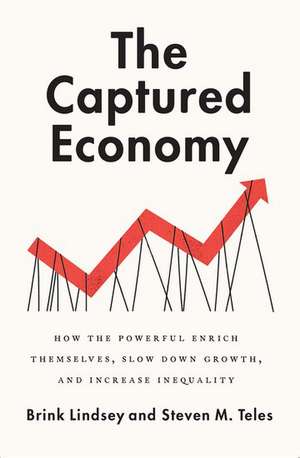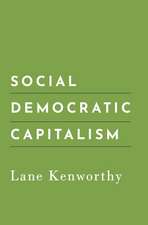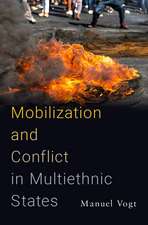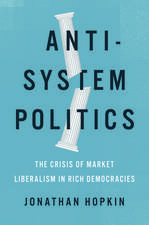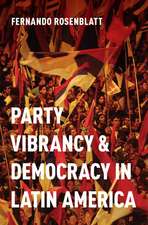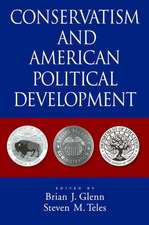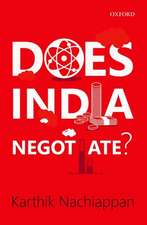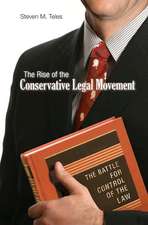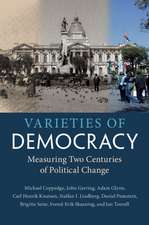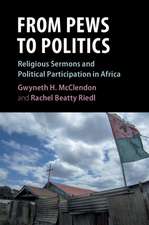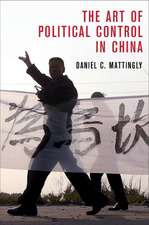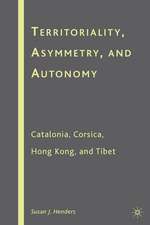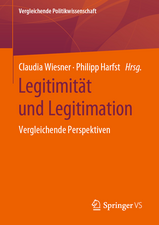The Captured Economy: How the Powerful Enrich Themselves, Slow Down Growth, and Increase Inequality
Autor Brink Lindsey, Steven M. Telesen Limba Engleză Paperback – 10 oct 2019
Preț: 100.40 lei
Preț vechi: 108.09 lei
-7% Nou
Puncte Express: 151
Preț estimativ în valută:
19.22€ • 20.88$ • 16.15£
19.22€ • 20.88$ • 16.15£
Carte tipărită la comandă
Livrare economică 09-15 aprilie
Preluare comenzi: 021 569.72.76
Specificații
ISBN-13: 9780190059002
ISBN-10: 0190059001
Pagini: 232
Dimensiuni: 137 x 208 x 15 mm
Greutate: 0.25 kg
Editura: Oxford University Press
Colecția OUP USA
Locul publicării:New York, United States
ISBN-10: 0190059001
Pagini: 232
Dimensiuni: 137 x 208 x 15 mm
Greutate: 0.25 kg
Editura: Oxford University Press
Colecția OUP USA
Locul publicării:New York, United States
Recenzii
Recommended.
A compelling and original argument about one of the most pressing issues of our time, The Captured Economy challenges readers to break out of traditional ideological and partisan silos and confront the hidden forces that are strangling opportunity in the contemporary United States.
Are you looking for how to get out of our current mess? The Captured Economy is perhaps the very best place to start.
American politics is mired in endless arguments about how much downward redistribution we want and how to provide it. But as Brink Lindsey and Steven Teles point out in this engaging, powerfully argued book, the reality of our political economy often looks much more like upward redistribution. In one arena after another, public policy enriches the already rich and advantages the already advantaged.
Steven Teles and Brink Lindsey ask one of the most important questions of our times: What are the political reforms we need to reduce the ability of the wealthy to maintain their capture of our government? Combining the analytic forces of liberalism and libertarianism, they provide a much-needed investigation into why the U.S. government works on behalf of the powerful and the steps we can take to address rising inequality and regressive regulation so that it instead acts in the public interest.
A clear and brilliant explanation of what has happened to America over the last few decades. Anyone who wants to understand what has happened to our economy, or our politics, needs to read this book." -Megan McArdle, Bloomberg View
Regardless of where your sympathies lie - redistribution is both good and bad - what connects all these activities and many others is that they don't result in the production of goods and services. Instead, they involve the shifting of money and wealth from one party or group to another. They recall the spirit of 19th-century politicians' defense of patronage jobs: 'To the victors belong the spoils.' This sort of economy may be larger than you think. That's the gist of the provocative new book 'The Captured Economy' by Brink Lindsey and Steven M. Teles . . . They argue that the economy is riddled with self-serving arrangements, mainly benefiting the rich, that impose excess costs on the poor and middle class and reducreduce economic growth." -Robert Samuelson, The Washington Post
14/01/2019
A compelling and original argument about one of the most pressing issues of our time, The Captured Economy challenges readers to break out of traditional ideological and partisan silos and confront the hidden forces that are strangling opportunity in the contemporary United States.
Are you looking for how to get out of our current mess? The Captured Economy is perhaps the very best place to start.
American politics is mired in endless arguments about how much downward redistribution we want and how to provide it. But as Brink Lindsey and Steven Teles point out in this engaging, powerfully argued book, the reality of our political economy often looks much more like upward redistribution. In one arena after another, public policy enriches the already rich and advantages the already advantaged.
Steven Teles and Brink Lindsey ask one of the most important questions of our times: What are the political reforms we need to reduce the ability of the wealthy to maintain their capture of our government? Combining the analytic forces of liberalism and libertarianism, they provide a much-needed investigation into why the U.S. government works on behalf of the powerful and the steps we can take to address rising inequality and regressive regulation so that it instead acts in the public interest.
A clear and brilliant explanation of what has happened to America over the last few decades. Anyone who wants to understand what has happened to our economy, or our politics, needs to read this book." -Megan McArdle, Bloomberg View
Regardless of where your sympathies lie - redistribution is both good and bad - what connects all these activities and many others is that they don't result in the production of goods and services. Instead, they involve the shifting of money and wealth from one party or group to another. They recall the spirit of 19th-century politicians' defense of patronage jobs: 'To the victors belong the spoils.' This sort of economy may be larger than you think. That's the gist of the provocative new book 'The Captured Economy' by Brink Lindsey and Steven M. Teles . . . They argue that the economy is riddled with self-serving arrangements, mainly benefiting the rich, that impose excess costs on the poor and middle class and reducreduce economic growth." -Robert Samuelson, The Washington Post
14/01/2019
Notă biografică
Brink Lindsey is Vice Policy President and Director of the Open Society Project at the Niskanen Center. He is the author of, most recently, The Age of Abundance and Human Capitalism. Steven M. Teles is Professor of Political Science at Johns Hopkins University and Senior Fellow at the Nikansen Center. He is the author of, most recently, The Rise of the Conservative Legal Movement and Prison Break: Why Conservatives Turned Against Mass Incarceration.
